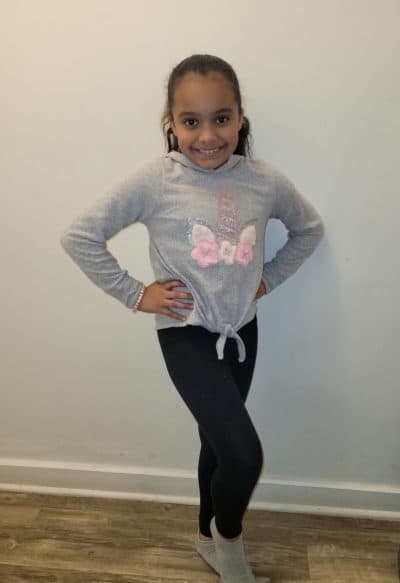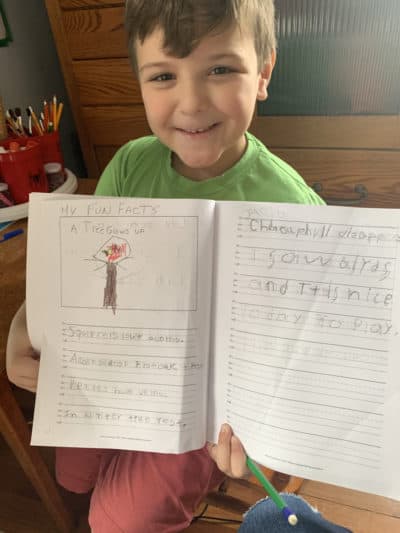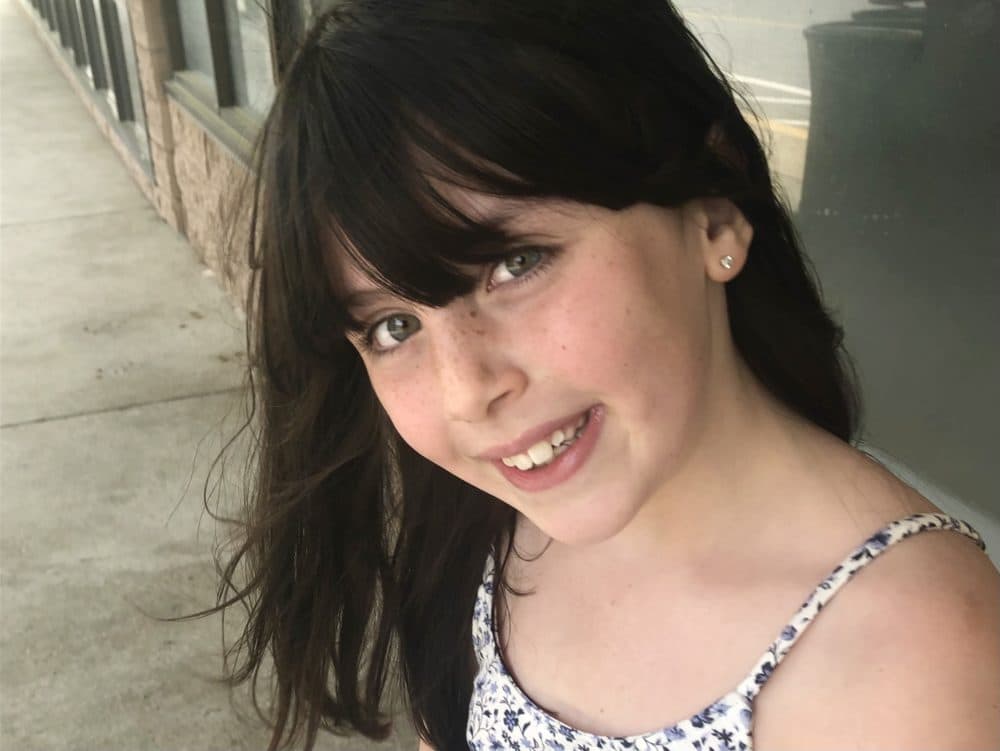Advertisement
Young kids reflect on fear, joys and lessons learned during the pandemic
Two years ago, our daily lives were upended.
March 10, 2020, Gov. Charlie Baker declared a state of emergency because of the spreading coronavirus. Less than a week later, elementary and secondary schools in Massachusetts shut down.
Victoria Quiñonez-DeLaRosa of Dedham was 6 years old then. She remembers all of it.
"I just heard the news and got kind of scared ... and asked my mom if it was true. And when she said, yes, I got really, really, really scared. And I started to kind of panic," Victoria recalled.

She recounted what it was like to suddenly realize the world had gotten "kind of harmful."
"You feel like you're in a dark hole that doesn't have any information on how to stop it, so that way you can go back to how you felt before, when you were even younger," she said. She often worried something bad was going to happen.
"I was kind of scared to express my feelings at the time, because I thought that everyone might have had the same feeling," Victoria said. "I didn't really focus on ... calming down ... and then maybe just pause and think about how I can get through this."
Kids have a lot to say about those times and the two years since. So we wanted to hear from some of the youngest — kids who barely had a foothold in elementary school when the pandemic came crashing in.
WBUR's All Things Considered host Lisa Mullins spoke with 8-year-old Victoria, who's in third grade at Brooke Charter School in Roslindale; 7-year-old Jacob Oliveira, a second grader at Gibbons Elementary School in Stoughton; and 9-year-old Brooke Sturman of Natick, who's in fourth grade at Lilja Elementary School.
Advertisement
Jacob has a 4-year-old brother who has a complex medical disorder that puts him at high risk from the coronavirus. So Jacob and his siblings barely left the house for a year and a half, except to play in the yard.

"Well, the toughest part [was] that I couldn't see my friends; I couldn't go to school. I only did half kindergarten and half virtual school in kindergarten. And in first grade, I did the whole year of school in virtual," Jacob said. "But then time passed, and it was getting very easier, and then ... I got to spend more time with my family ... and I watched movies and [made video] calls to see my grandma ... And it was, like, very kind of emotional because I couldn't see her in person, but I can see her in the calls."
His grandmother is in Brazil. He hopes to be able to see her in person now that the pandemic is easing, he said.
For Victoria, remote schooling was the biggest adjustment.
"When I was doing virtual learning, I kind of felt like I was trapped in a bubble. It didn't feel the same as it was when I was in school, like in the building," she said. "Since I had a really nice and funny teacher ... I wish I could have seen him in person. It would have been more exciting ... and I just felt like the space I was in at the time didn't really help me to understand what we were learning."
Brooke Sturman was 7 when the pandemic hit.
"The worst part was feeling really lonely ... and also ... I really, really missed school because I missed, like, a teacher sitting down with me and then being like, 'OK, class, this is the lesson today. We're learning this. Flip to your math workbook, write down in your journal. We're going to be learning about this type of writing today,' " Brooke said. "And I just missed having someone just, like, tell me what to do and making me feel like I have to do that. And, like ... all I wanted to do was go to school."

Brooke says her mom, who is a teacher, tried to make things at home feel more like school. And her grandmother played a big role in helping out from Connecticut.
"She would do Zoom calls with us, and she would read to us. She would teach us some lessons ... We would do Qi Gong with her to get some exercise ... And she would do some baking and some science experiments," Brooke said. "What was good is I also got really closer to her. I usually would only see her on holidays. But now I'm a lot more closer to my grandma. ... My grandmother rocks."
Jacob and Victoria echoed the sentiment that spending so much time at home has made them appreciate family — and little things in life — a lot more. Jacob said he enjoyed cooking s'mores around backyard campfires. Victoria had fun dressing up her dolls and cooking with her grandmother.
"We do a lot of traditional dishes during holidays ... or just any time we visit each other," Victoria said. "Some of the Guatemalan dishes we make together are temporadas and pupusas ... I just feel like that helps me connect with the ones I wasn't able to connect with as much before."
When asked about good times that stand out to them in the last two years, all three kids recalled moments when things felt a little more normal — or just extra special. For Jacob, it was his sixth birthday celebration, in 2020, courtesy of the Stoughton Police Department.
"I got a parade with police officers. It was so good!" he said. "They were in cars, and they put on the lights ... And I got a Lego police officer for my toy. It was the best!"
For Brooke, it was a "girls' day" with her mom and sister.
"Well, my mom would always say [that] after COVID, we would have, like, a really fun day; we would go to the movies, and we'd do all that stuff we couldn't do in COVID. And since COVID was kind of cleaned up a little bit, we went and we had a really fun day ... and we went to a really good diner," she said. "We went to Fun and Games, and then we watched a movie and had a sleepover. And I remember that [day just] felt so nice, because it felt like even though COVID isn't technically over, it felt like it was. And it felt really good to do stuff I used to do."
Victoria said a moment that stands out is her eighth birthday last August, when her family had an outdoor celebration — meaning she could be maskless and free.
"I was able to get a water slide, and a whole bunch of my friends came over," she said. "It felt really good to see all my friends after a really long while."
The kids say they'll also remember non-stop news reports about COVID, along with the huge role masks played in their lives. They say they got quite used to wearing the face coverings. Two of the three kids got COVID themselves. They got sick briefly and recovered easily. One of their parents got quite sick, and two parents lost cousins to the illness.
Looking ahead, Jacob can't wait for the day his high-risk little brother can get a COVID vaccine and venture out. Victoria wants to go to amusement parks. Brooke is excited for her sister's bat mitzvah. She says the pandemic has given her a new outlook.
"I learned not to take stuff for granted," she said. "Don't take family or anything for granted — don't take school, don't take food, don't take family. Like, everything isn't always guaranteed."
This segment aired on March 10, 2022.

